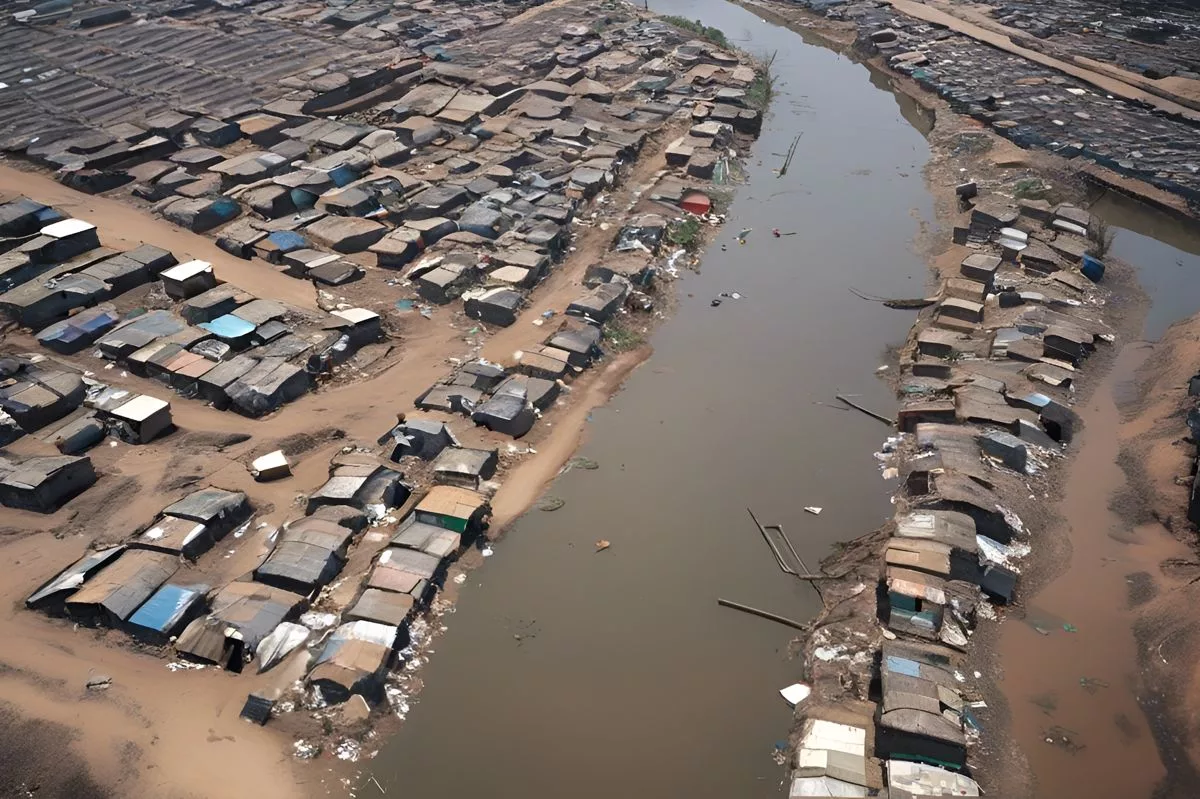Minister Siviwe Gwarube addressed a serious crisis in South Africa’s education system, where years of budget cuts have left schools struggling. Provinces are facing tough choices, like reducing teaching staff, which means bigger class sizes and less attention for students. This budget crisis not only threatens the quality of education but also burdens teachers and affects the whole community. Gwarube emphasized the need for immediate action and better funding to ensure every child gets a fair chance to learn and succeed. The future of education is at stake, and it’s time to invest wisely for a brighter tomorrow.
What is the current state of education funding in South Africa?
South Africa’s education system faces a critical budget crisis, with provinces struggling to maintain teaching posts and essential services due to years of budget cuts. Key issues include increasing class sizes, insufficient resources, and a growing student population, threatening the quality of education nationwide.
Greetings, everyone. I appreciate your presence today, especially those dedicated to nurturing the future of our education system.
This morning’s press briefing aims to shine a light on a pressing issue—our education system is experiencing severe distress. Recently, multiple provincial education departments have voiced their struggles in managing budget limitations. These financial woes stem from years of relentless budget cuts, economic stagnation, and inefficient fiscal management. The consequences are dire: fewer educators, a shortage of textbooks, and a lack of administrative support. Teachers find themselves burdened with administrative duties, significantly reducing their effective teaching time. The very essence of our children’s future is in jeopardy.
The Impact of Budget Cuts: A National Crisis
The Western Cape serves as a glaring example of the challenges at hand. The province faces the tough choice of reducing teaching posts for 2025, a decision likely to increase class sizes and diminish individualized student attention. This move jeopardizes the aim of delivering quality education. Regrettably, this scenario is not unique. Provinces nationwide face similar dilemmas, struggling to maintain essential services such as textbooks, administrative support, and school transport programs.
Together with the Deputy Minister, I have been in constant communication with provincial departments to provide support during this fiscal crisis. We are committed to stabilizing the system and have urged provinces to maintain their teaching posts to safeguard educational outcomes. I must commend the relentless efforts of the MECs and their teams in upholding the integrity of teaching and learning in our schools.
This national crisis impacts not only students but also teachers, principals, and the wider community. It’s essential to understand that this issue transcends individual provinces or specific sectors of education. Each province faces tough decisions, and without proactive measures, the situation will deteriorate. For instance:
- By the 2025/26 financial year, four provincial departments will struggle to balance their budgets.
- By the 2026/27 financial year, this number will rise to five provinces.
- By the 2027/28 financial year, seven provinces will be unable to afford their budgets.
Some provinces have not increased teaching posts for three consecutive academic years, despite a rise in student numbers. Others have opted not to fill vacant posts instead of laying off staff. Nationally, the student population has grown by approximately 292,820 over the past five years. This has led to an increase in Learner/Educator Ratios, affecting the quality of teaching. Most Provincial Education Departments require between R350 million and R3.8 billion over the Medium-Term Expenditure Framework to maintain current teaching posts. Without intervention, projections indicate most provinces will struggle to sustain existing staff levels.
A Legacy of Misaligned Priorities
To comprehend our current predicament, we must scrutinize past decisions. For nearly a decade, our economy has stagnated, with growth rates remaining below 1% in real terms. This sluggish growth fails to generate the necessary tax revenue to fund public services, including education. Declining revenues lead to shrinking budgets.
South Africa requires a robust economy to adequately fund public services. We must adopt economic policies focused on growth, similar to those championed by Operation Vulindlela, which aims to eliminate key growth constraints. Regulatory barriers hindering business expansion must be removed, and private sector investment in crucial industries such as manufacturing and technology should be encouraged.
Our spending priorities also need reevaluation. Between 2013 and 2023, the government spent R331 billion on bailing out state-owned enterprises (SOEs). This enormous sum could have been used to fund critical sectors like education, healthcare, and infrastructure development. Instead, it propped up underperforming SOEs, draining public resources and hampering our economy. Corruption and wasteful expenditure have further depleted state coffers. Between 2014 and 2023, South Africa lost an estimated R1.5 trillion in economic value to corruption—money that should have built schools, paid teachers, and improved learning conditions. Instead, it enriched a few at the expense of many.
Additionally, unsustainable increases in the public wage bill over the past 15 years have strained government spending. Public sector salary increases, some as high as 8-10%, have consistently outpaced inflation. While fair compensation for public servants is necessary, these above-inflation increases have rendered the public wage bill unaffordable, consuming nearly 35% of government spending and leaving little room for investment in key sectors like education.
Proactive Leadership and Immediate Interventions
To confront this immediate crisis, I convened two special meetings of the Council of Education Ministers (CEM). These meetings brought together education MECs from across the country to perform a detailed analysis of the budget challenges faced by each province. For the first time in a decade, we have a clearer understanding of the significant budget pressures and how we need to engage with the Treasury to address these challenges.
I have requested an urgent meeting with the Minister of Finance to delve deeper into the matter, and I express my gratitude to Minister Godongwana for his cooperation. Treasury’s willingness to engage with the education sector is critical for finding a solution to protect frontline services. Additionally, I have called for a 10×10 meeting involving the Minister of Finance, provincial Finance MECs, myself, and the nine Education MECs. We must collaborate to unlock additional funds, even if temporarily, to alleviate the pressures facing the education sector and prevent further cuts to teaching posts and essential services like school nutrition and transport.
We also need to consider reallocating budgets across departments from underperforming programs to national priorities. Fixing the economy is crucial, but we must also rethink how we invest in education. Education is not merely an expenditure; it is an investment in our country’s future. A well-educated population forms the foundation of a prosperous, competitive, and innovative economy. Without it, we cannot hope to tackle unemployment or compete globally.
The Long-Term Vision: Investing in Our Future
In the long term, we need policies that prioritize education as a national imperative. This means:
- Increased Investment: Allocate a larger share of the national budget to education, ensuring sufficient teachers, quality infrastructure, and adequate resources for every learner.
- Teacher Development: Invest in upskilling teachers, equipping them with the tools and knowledge needed to educate in a rapidly evolving world.
- Technology in Education: Integrate technology into classrooms by providing digital tools, internet access, and training for both teachers and learners, ensuring no child is left behind in the 21st century.
- Infrastructure Improvement: Eradicate unsafe infrastructure, such as pit latrines, to provide a safe and conducive learning environment.
Ladies and gentlemen, our education system is the foundation of our nation’s future. While we face significant challenges, they are not insurmountable. These challenges require decisive action and an unwavering commitment to prioritizing education. Finally, I would like to extend my thanks to the MECs for Education, their provincial Departments, the Minister of Finance, my Department, Teacher Unions, and the ELRC for their cooperation and support on this matter to date.
Thank you.
FAQs on the Education Budget Crisis in South Africa
What is the current state of education funding in South Africa?
South Africa’s education system is facing a critical budget crisis due to years of budget cuts, leading to struggles in maintaining teaching posts and essential services. This has resulted in larger class sizes, insufficient resources, and a growing student population, jeopardizing the quality of education.
How have budget cuts affected schools and teachers?
Budget cuts have led to reduced teaching staff, resulting in larger class sizes and less individualized attention for students. Teachers are overwhelmed with administrative duties, which decreases their effective teaching time and impacts the overall learning environment.
What actions are being taken to address the education budget crisis?
Minister Siviwe Gwarube is actively engaging with provincial education departments and the Treasury to analyze budget challenges and seek additional funding. Special meetings have been convened with education MECs to tackle immediate financial pressures and explore reallocating budgets from underperforming departments.
What are the long-term implications of the education budget crisis?
Without immediate and effective intervention, many provinces could struggle to maintain their existing staff levels, leading to declines in educational quality. The increased Learner/Educator Ratios could hamper students’ learning experiences, ultimately affecting the future workforce and economic stability of the country.
What strategies are being proposed to improve education funding?
The Minister emphasizes the need for increased investment in education, focusing on teacher development, technology integration, and infrastructure improvements. A larger share of the national budget must be allocated to education to ensure every learner receives quality instruction and resources.
Why is education considered an investment for the future?
Investing in education is crucial for building a well-educated population that can drive economic growth and innovation. A robust education system lays the foundation for addressing challenges like unemployment and global competitiveness, making it essential for the country’s long-term prosperity.












